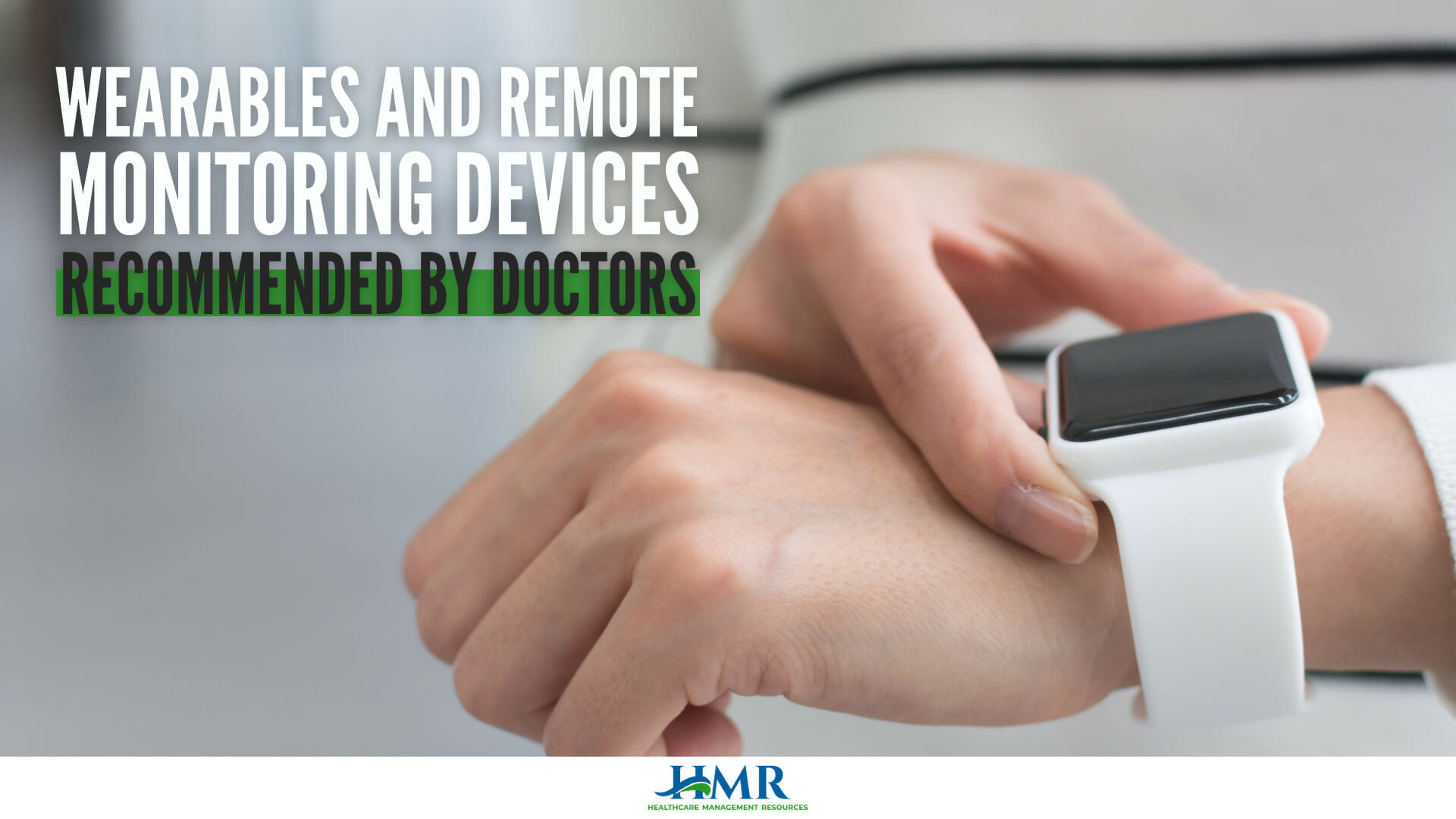Wearables and Remote Monitoring Devices Recommended by Doctors

The field of healthcare is witnessing a remarkable transformation with the emergence of innovative wearable devices and remote monitoring technologies. Doctors are increasingly recommending these high-tech solutions to patients to facilitate better health management, early disease detection, and improved overall well-being. In this comprehensive guide, we will explore various types of new wearables and remote monitoring devices that are making a difference in modern healthcare.
Smartwatches and Fitness Trackers
Smartwatches and fitness trackers have become ubiquitous in recent years, and for good reason. These sleek, wrist-worn devices are packed with sensors and features that allow users to monitor a wide range of health metrics. Doctors often recommend smartwatches and fitness trackers for tracking daily physical activity, heart rate, sleep patterns, and even stress levels. Some of these devices also offer features like ECG monitoring, which can help detect irregular heart rhythms and potential cardiac issues.
Notable brands in this category include Apple Watch, Fitbit, Garmin, and Samsung Galaxy Watch.
Continuous Glucose Monitors (CGMs)
For individuals with diabetes, continuous glucose monitors (CGMs) have revolutionized blood glucose monitoring. These wearable sensors are inserted under the skin and provide real-time glucose level data. Doctors recommend CGMs to help patients manage their diabetes more effectively by making informed decisions about insulin dosage, diet, and exercise.
Prominent CGM brands include Dexcom, Abbott FreeStyle Libre, and Medtronic.
Wearable ECG Monitors
Wearable ECG monitors are designed to capture and record electrocardiogram (ECG) data, allowing users to monitor their heart’s electrical activity over time. These devices are especially useful for individuals with heart conditions or those at risk of cardiac issues. Doctors recommend wearable ECG monitors for continuous heart rhythm monitoring and early detection of arrhythmias.
Notable examples include the AliveCor KardiaMobile, Withings Move ECG, and Apple Watch Series 4 and later.
Remote Blood Pressure Monitors
Managing hypertension and keeping track of blood pressure is vital for preventing heart disease and stroke. Remote blood pressure monitors offer a convenient way for patients to monitor their blood pressure at home. Doctors often prescribe these devices to ensure accurate and regular monitoring, helping to adjust medication and lifestyle factors as needed.
Popular remote blood pressure monitor brands include Omron and Withings.
Pulse Oximeters
Pulse oximeters are small, portable devices that clip onto a finger to measure blood oxygen levels and pulse rate. They have gained prominence during the COVID-19 pandemic for monitoring oxygen saturation, a critical parameter in respiratory health. Doctors recommend pulse oximeters for individuals with respiratory conditions, such as chronic obstructive pulmonary disease (COPD) and asthma.
Well-known pulse oximeter manufacturers include Nonin, Masimo, and Contec.
Smart Inhalers
Smart inhalers are designed for individuals with asthma and chronic obstructive pulmonary disease (COPD). These devices attach to standard inhalers and track medication usage. They help patients adhere to prescribed inhaler regimens and provide insights into inhaler usage patterns. Doctors recommend smart inhalers to improve medication compliance and overall respiratory health.
Examples of smart inhaler brands include Propeller Health and Adherium.
Wearable Sleep Trackers
Sleep is a crucial aspect of overall health, and doctors recognize the importance of monitoring sleep patterns. Wearable sleep trackers, often integrated into smartwatches and fitness bands, record sleep duration, sleep stages, and disruptions. Doctors recommend these devices to patients with sleep disorders like sleep apnea and insomnia to gather valuable data for diagnosis and treatment.
Popular sleep-tracking devices include Fitbit trackers, Garmin Vivosmart, and various Apple Watch models.
Remote Patient Monitoring (RPM) Systems
Remote Patient Monitoring (RPM) systems are comprehensive platforms that connect various medical devices and sensors for continuous monitoring. These systems are particularly beneficial for patients with chronic conditions or those recovering from surgery. RPM systems enable doctors to remotely monitor multiple vital signs and provide timely interventions when necessary.
Leading RPM solution providers include Philips, Medtronic, and BioTel Heart.
Wearable Fall Detection Devices
Falls among the elderly are a significant concern in healthcare. Wearable fall detection devices are designed to detect sudden falls and send alerts to caregivers or emergency services. Doctors recommend these devices to elderly patients at risk of falls to ensure rapid assistance in case of an accident.
Brands like Medical Guardian and Lively offer wearable fall detection solutions.
Smart Thermometers
Smart thermometers have evolved beyond traditional temperature measurement. They connect to smartphones and provide additional features like fever trend tracking and symptom logging. Doctors recommend smart thermometers for monitoring fevers, especially in children, and for assessing overall health trends.
Popular smart thermometer brands include Kinsa and iHealth.
Conclusion
The landscape of wearables and remote monitoring devices recommended by doctors is diverse and continually evolving. These devices empower patients to take charge of their health by providing real-time data and facilitating proactive healthcare management. Whether it’s monitoring vital signs, tracking chronic conditions, or ensuring better sleep quality, these innovations are shaping the future of healthcare by fostering a stronger connection between patients and healthcare providers. As technology continues to advance, we can expect even more groundbreaking developments in this field, further enhancing the quality of patient care and overall well-being.
